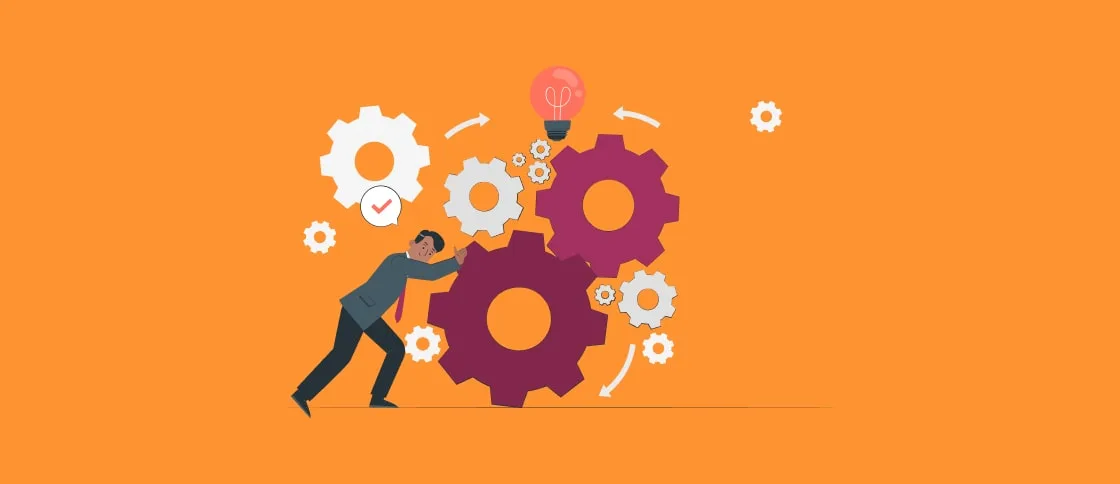Awareness of application modernization strategies is key to peak performance. It is especially important if the company aims to achieve its peak performance. Modernization means rethinking the software to make it more competitive. Operating with legacy systems in 2024 is a road to failure. It means keeping your business stagnant and losing revenue.
At Softacom, we help companies worldwide fix gaps in their software. Our expertise lets us define the main reasons why companies turn to us:
- Reduce expenses
- Boost agility and scalability
- Keep up with innovations
- Improve user experience
In these cases, the integration of modernization strategy is the best solution. This is a complex process. The business has to define what to modernize, why to do it, and how to use the proper option.
Overview Of Leading Application Modernization Strategies
An app modernization strategy aims to improve outdated apps. App rehosting, rebuilding, and rewriting are the most mentioned app improvement methods. Several other strategies may suit the needs of your business.
Rehost
This mechanism involves making no changes to the app code. It consists of transferring it from a private server to the cloud. Rehosting is the lift-and-shift IT modernization strategy. If your business wants to update legacy software, try rehosting. It’s the easiest way. Besides the smooth migration process, rehosting doesn’t mean high expenses. This strategy is right when you don’t need to update anything in the app. You must move it to the cloud for some reason.
Rewrite, or Refactor
Legacy code refactoring strategy implies you change the code. But it’s crucial that the user experience of the app remains unchanged. People who visit the site can perform regular actions as they did before. Using this software modernization strategy is a big step for businesses. It helps to optimize the app’s work and boost scalability. The main effect is smooth cloud integration. Refactoring is one of the patterns for increasing the scalability of the app. Also, it’s perfect for modernizing the complicated code of the software.
Rearchitect
Legacy code refarchitecting is rewriting, but with bigger changes. Rearchitecting is perfect for making the legacy app suitable to operate in the cloud. Besides, it boosts agility and scalability to fit your business needs. This application modernization strategy has benefits. One is reduced costs. Your company needs to apply this strategy if you have a legacy app that isn’t cloud-native. It’s a good way to tackle certain software dependencies.
Rebuild
In this strategy, the new app architecture will replace the past one. Everything that can remain is the function of the legacy app. This way, you create a new, innovative version of your application that can work in a cloud. The key benefits are total upgrade and integration of the latest technologies. As a result, you get the most efficient app with fewer expenses. When other approaches fail, use application modernization patterns to rebuild.
Replace
Replacing means rebuilding the old app and making a new product. When your business uses replacing, you should remove the outdated app. Replacing strategy gives your business a competitive advantage. This modernization pattern implements a new solution that meets your business objectives. Besides that, this approach is fast and easy to put in place. Use replacing if the current system isn’t working. Replace when you understand that software modernization costs will be too high.
Retain, or Encapsulate
App modernization strategy via encapsulation means the code must stay the same. Instead, it means finding functions or elements to change to boost interactions. For example, it helps legacy apps interact with a new service. Retaining is best for improving apps without major changes. Also, you can choose the functions to modernize and boost strengths. Encapsulating is a top choice when no serious modernization is necessary. Use it when only a few changes can boost efficiency.
Steps of Legacy Application Modernization Strategy
If you realize that your business performance is weak, it’s time to take action. Start with changing the application modernization framework. Consider reengineering legacy systems or creating a new app. This is a promising but complicated journey that will be simpler with this roadmap:
- Analyze the current state of affairs. Try to define the strengths and areas for improvement in the current app. It’ll help you define your modernization goals and find the right strategy.
- Define the key issue to fix. This step also involves defining the scope of the project. Focus on the main problem you want to fix with the app modernization. Better create a document with a plan for your team at this stage.
- Prepare for modernization. Make the necessary amendments to your team first. Emphasize the learning opportunities of this application transformation strategy. Do your best to ensure a smooth adoption of the new technologies.
- Define the technologies and resources. At this step, try to find the technologies, tools, and other software for modernization. The selected software should simplify the process.
- Come up with a convincing business plan. Make your stakeholders understand the urgency of starting modernization. Find strong arguments to convince them to give the necessary funding.
- Select the modernization strategy. Check the peculiarities of all available approaches above. Assess your business needs and goals next. Then define the most cost-effective and efficient application modernization approach.
- Decide how to assess the results. Selecting proper metrics is crucial to measure effectiveness. Communicate with your team members first. Define KPIs that will reflect the specifics of your project together.
- Enlist the support. App modernization is a complex process. Especially if your team lacks skilled professionals in this area. Finding the partner can help you systematize processes. This way, the transition becomes more smooth.
Sometimes, modernization may need testing several approaches to find a suitable one. If you follow the guidelines and move step-by-step, you’ll face the deployment very soon.
Softacom: Your Right Partner for App Modernization
Consider trusting legacy systems integration to experts. Legacy application modernization strategies are very difficult to integrate with no experience. But not every assistant is as skilled as they claim to be. Be sure to select the proper partner for app modernization. Check the company, its reputation, and previous projects. You should follow the company culture and technology stack for productive cooperation.
Softacom has the knowledge of the most effective software approaches. We tested them in more than 90+ projects. The company cooperated with hundreds of businesses in 15+ areas. Our seasoned experts brought even the most outdated projects to a new level. Softacom professionals know how to transform even with the most complicated projects. The latest IT modernization strategies we use will help you succeed.








